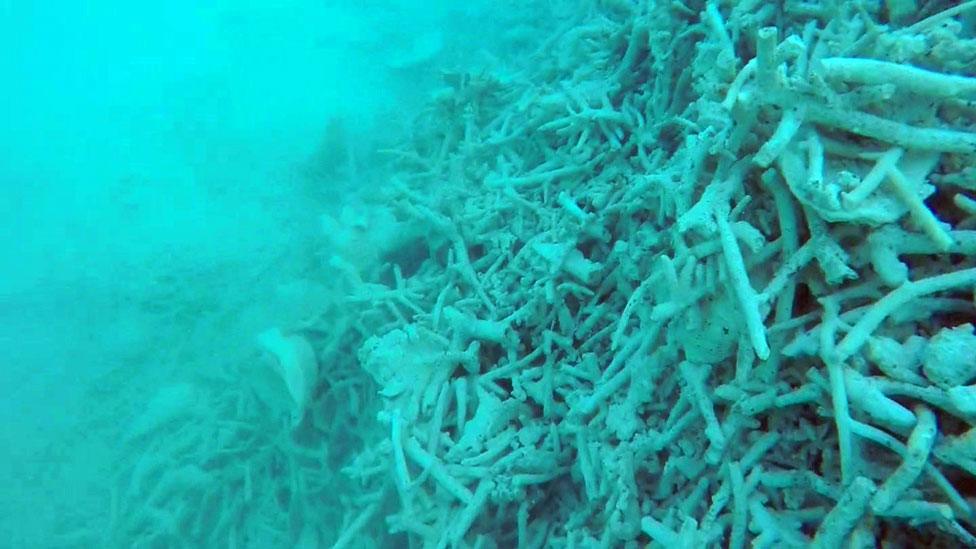China to set up maritime 'judicial centre'
- Published
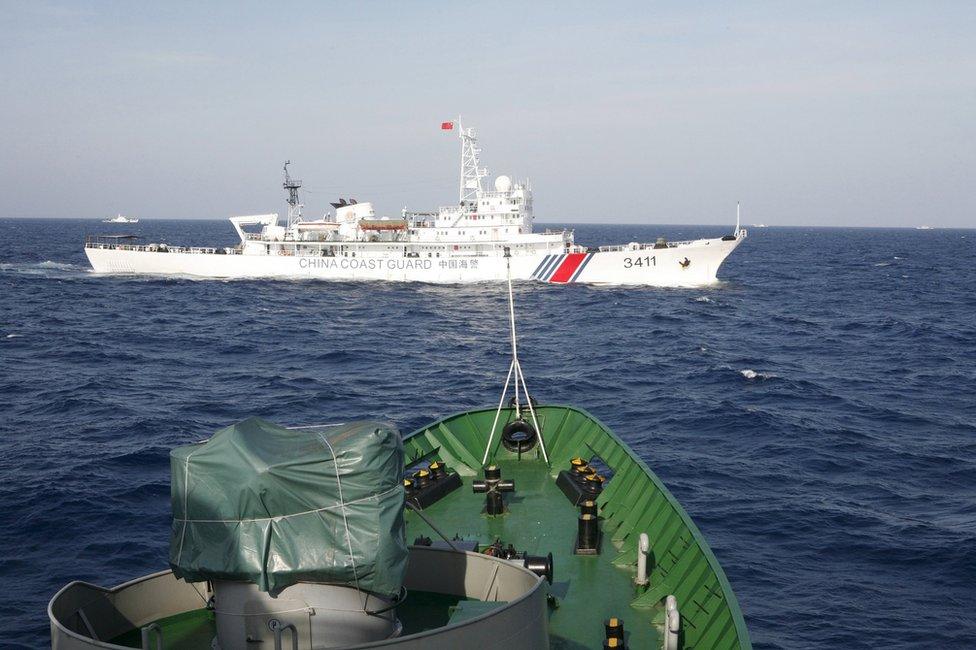
China has stepped up coast guard patrols in the South China Sea where it has several claims disputed by its neighbours
China's Supreme Court is setting up its own international maritime "judicial centre" to handle territorial disputes.
The top court gave few details in its announcement, but said the centre would help China become a "maritime power".
Beijing is locked in disputes with its neighbours over claims in the resource-rich South China Sea, with tensions raised in recent months over China's aggressive land reclamation.
It has also squared off with Japan over the Diaoyu or Senkaku islands.
What is the South China Sea dispute?
'Safeguard interests'
The announcement of the new centre came from Chief Justice Zhou Qiang on Sunday during the ongoing annual meeting of China's parliament.
"(We) must resolutely safeguard China's national sovereignty, maritime rights and other core interests," he said, without giving further details on the centre and how it would work.
However the authority of any such centre is unlikely to be recognised by the many neighbours with whom China has territorial disputes.
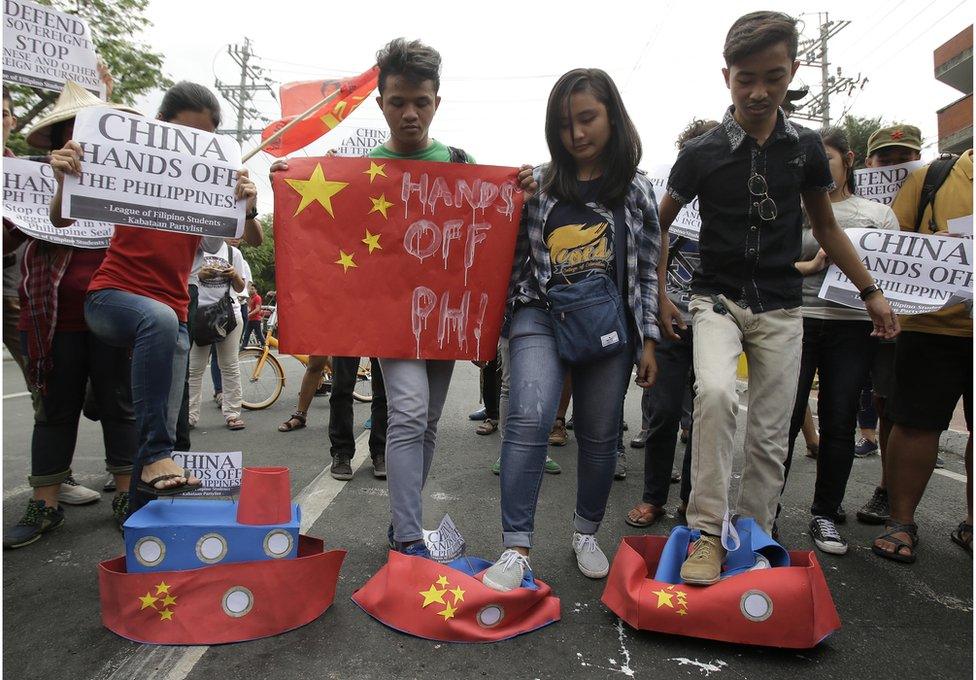
Filipino student activists staged a protest against China's island-building in the South China Sea earlier this month in Manila
China claims a large swathe of the South and East China Sea, creating multiple overlaps with areas claimed by the Philippines, Vietnam, Brunei, Malaysia, Taiwan and Japan.
The Philippines currently has a case lodged against China at the UN's Permanent Court of Arbitration in The Hague.
It says the "nine-dash line", which China uses to demarcate its claims, is unlawful under the UN Convention on the Law of the Sea, which both countries have signed.
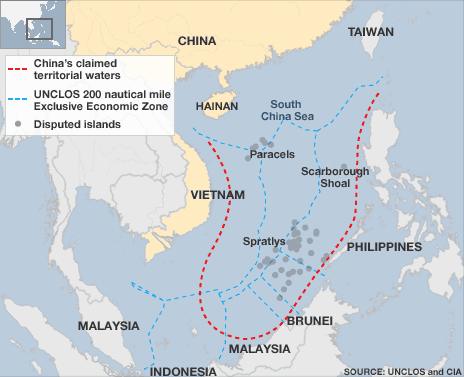
Beijing has refused to participate in the tribunal, saying the court has no power to rule on the matter.
Tensions have increased as China continues to build artificial islands, airport runways and facilities on disputed reefs, prompting calls from the US for a halt in such activities.
Opponents have accused Beijing of militarisation but China says such construction is within its rights and any building is for civilian purposes.
- Published10 November 2014
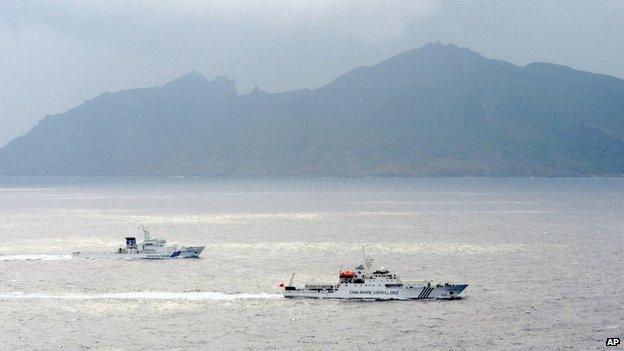
- Published7 July 2023
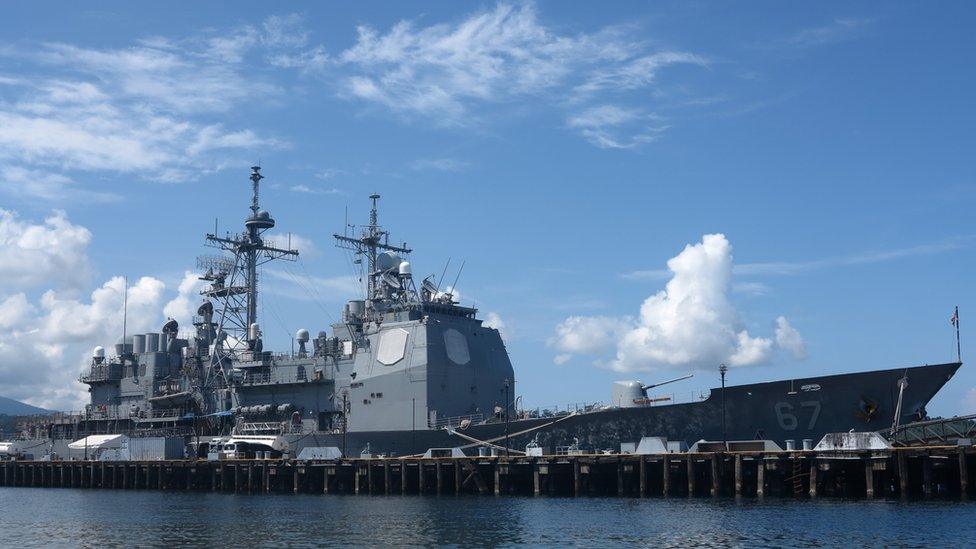
- Published9 September 2014
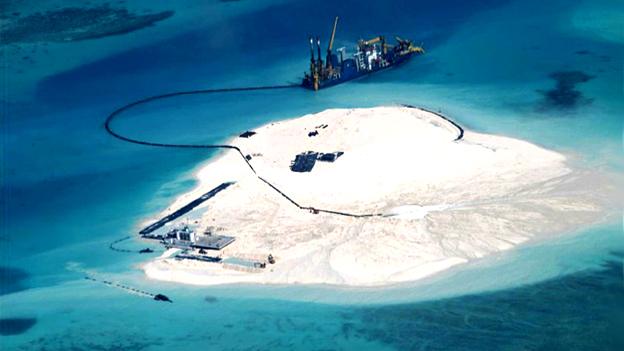
- Published17 February 2016
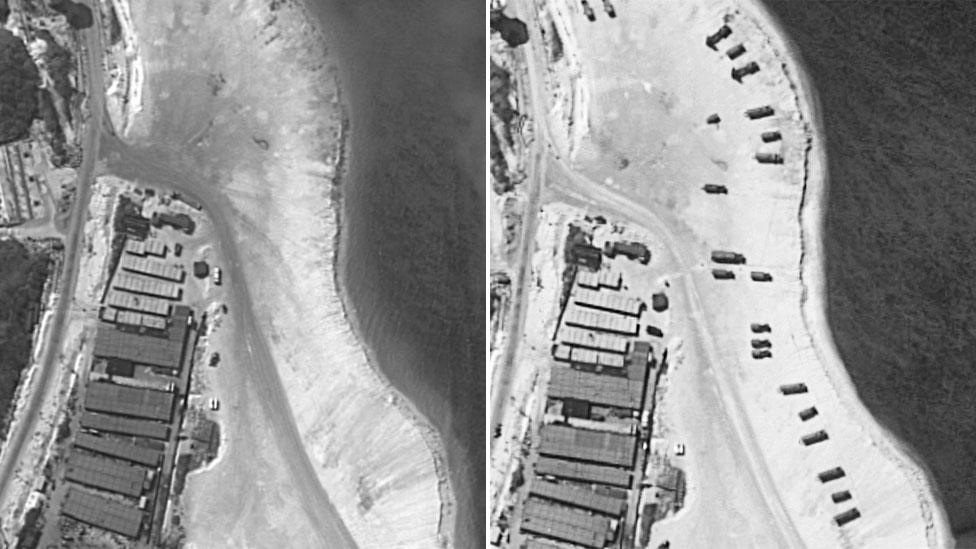
- Published15 December 2015
